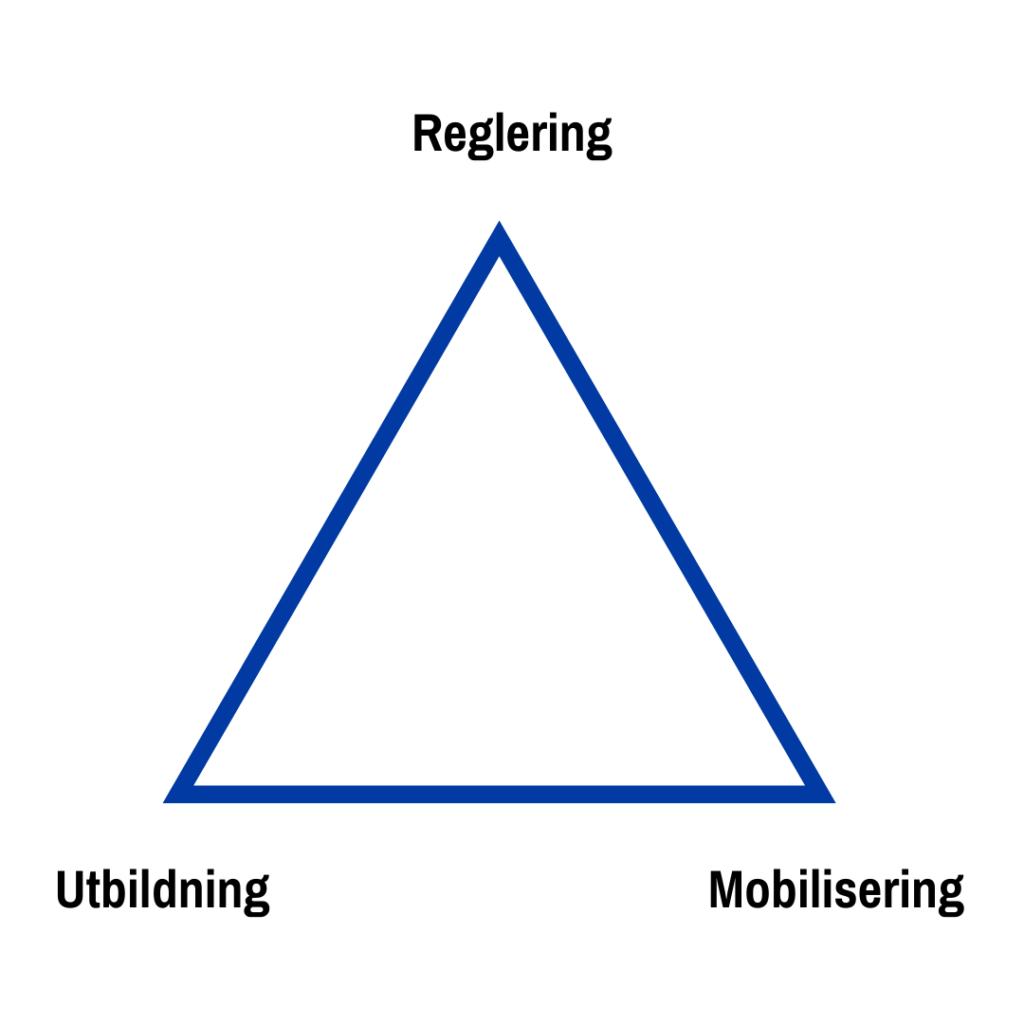The work to prevent alcohol-related harm, both to the drinker and to the family and others in the environment, is central to everything we do. It is always better to prevent problems than to have to deal with the effects, both from a human and an economic point of view.

Our view of preventive work can be described through the so-called prevention triangle. It has three corners: regulation, social mobilization and education. All three parts are important and strengthen each other.
Setting rules that apply to the entire population is central to keeping alcohol consumption down and thus the damage. Examples of such rules are that
Today, many low- and middle-income countries completely lack this type of regulation, leaving the field open for the global alcohol industry. We in the IOGT-NTO movement and our partner organizations are actively working for more countries to implement an effective and evidence-based policy in the area of alcohol.
Gathering and organizing people around a particular issue can create unimaginable power. It can be village councils, health workers and ordinary families in a village in southern Tanzania. It can also be church leaders and scouts in Kenya who get together and start discussing and acting.
Social mobilization means that the people themselves create and own the solutions to the problems, which is a good prerequisite for sustainability and long-term. Many of our partner organizations work with grassroots mobilization.
Knowledge of alcohol and the effects it has is necessary for people to be able to make informed choices, both about their own use and about the types of regulations on alcohol they may consider accepting or supporting.
Education alone usually does not change people's behavior. Teaching people "to drink safely" is something that the alcohol industry is happy to promote as an alternative to an effective alcohol policy. However, that strategy works poorly. But as a complement to regulation and social mobilization, education is good.
